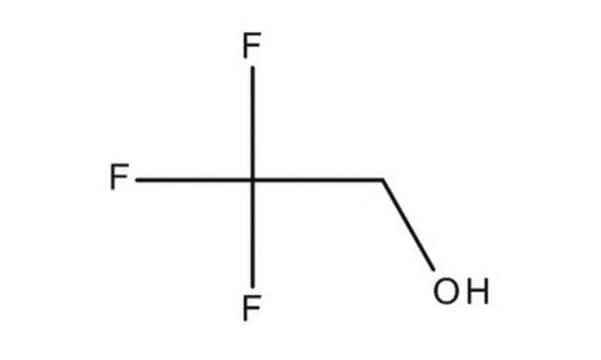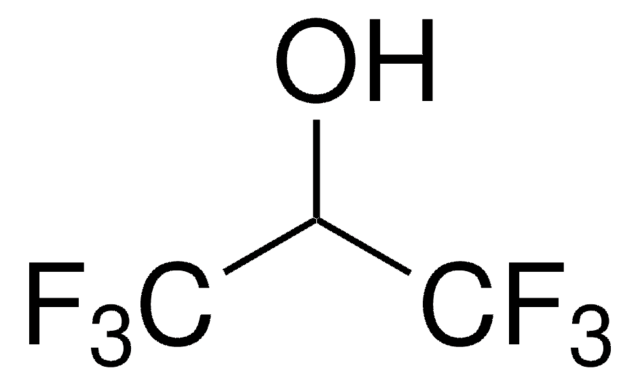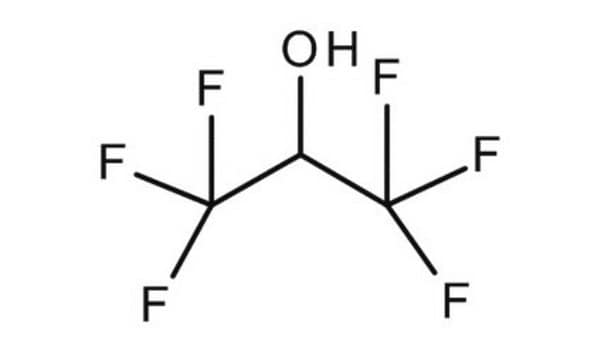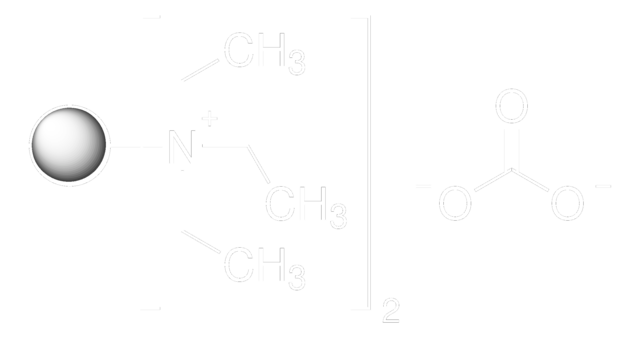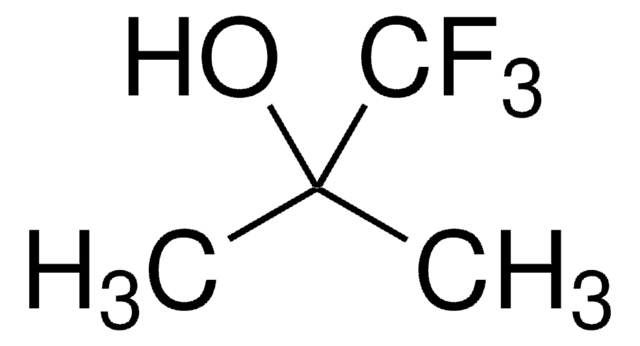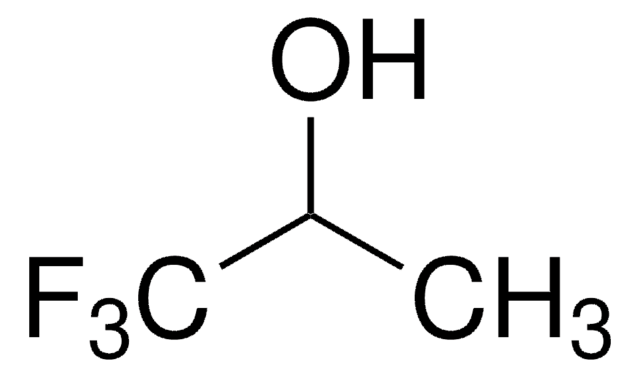96924
2,2,2-Trifluoroethanol
BioUltra, for molecular biology, ≥99.0% (GC)
Synonym(s):
Trifluoroethyl alcohol
About This Item
Recommended Products
grade
for molecular biology
vapor density
3.5 (vs air)
vapor pressure
70 mmHg ( 25 °C)
product line
BioUltra
Assay
≥99.0% (GC)
form
liquid
autoignition temp.
~896 °F
expl. lim.
42 %
impurities
DNases, none detected
RNases, none detected
insoluble matter, passes filter test
phosphatases, none detected
proteases, none detected
refractive index
n20/D 1.3 (lit.)
bp
77-80 °C (lit.)
mp
−44 °C (lit.)
density
1.373 g/mL at 25 °C (lit.)
cation traces
Al: ≤0.5 mg/kg
Ba: ≤0.1 mg/kg
Bi: ≤0.1 mg/kg
Ca: ≤0.5 mg/kg
Cd: ≤0.05 mg/kg
Co: ≤0.02 mg/kg
Cr: ≤0.02 mg/kg
Cu: ≤0.02 mg/kg
Fe: ≤0.1 mg/kg
K: ≤0.5 mg/kg
Li: ≤0.1 mg/kg
Mg: ≤0.1 mg/kg
Mn: ≤0.02 mg/kg
Mo: ≤0.1 mg/kg
Na: ≤1 mg/kg
Ni: ≤0.02 mg/kg
Pb: ≤0.1 mg/kg
Sr: ≤0.1 mg/kg
Zn: ≤0.1 mg/kg
λ
neat
UV absorption
λ: 260 nm Amax: ≤0.03
λ: 280 nm Amax: ≤0.02
SMILES string
OCC(F)(F)F
application(s)
sample preparation
InChI
1S/C2H3F3O/c3-2(4,5)1-6/h6H,1H2
InChI key
RHQDFWAXVIIEBN-UHFFFAOYSA-N
Looking for similar products? Visit Product Comparison Guide
Application
Other Notes
Signal Word
Danger
Hazard Statements
Precautionary Statements
Hazard Classifications
Acute Tox. 3 Inhalation - Acute Tox. 3 Oral - Eye Dam. 1 - Flam. Liq. 3 - Repr. 1B - STOT RE 2 Inhalation
Target Organs
Blood
Storage Class Code
3 - Flammable liquids
WGK
WGK 1
Flash Point(F)
86.0 °F - closed cup
Flash Point(C)
30 °C - closed cup
Personal Protective Equipment
Choose from one of the most recent versions:
Already Own This Product?
Find documentation for the products that you have recently purchased in the Document Library.
Customers Also Viewed
Our team of scientists has experience in all areas of research including Life Science, Material Science, Chemical Synthesis, Chromatography, Analytical and many others.
Contact Technical Service